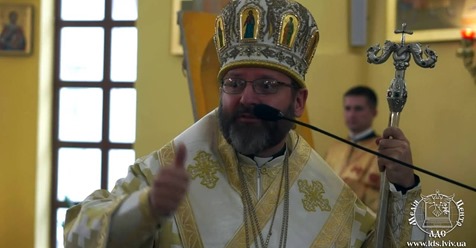 From a 2016 sermon of His Beatitude Sviatoslav of Kyiv and Halych:
From a 2016 sermon of His Beatitude Sviatoslav of Kyiv and Halych:
Today’s question is: What does it mean to be a faithful member or believer of the UGCC? This is a question of identity of the Church and us. The Kyivan Church of the third millennium—who are we? What do we do as members of this Church?
Here in our midst are members [of the Church] from the whole world. We have with us brothers and sisters from Australia here today. This question has broad answers. What makes us Ukrainian Greco-Catholics? Being Ukrainian? Today about 1/3 of our parishes in the diaspora [in North and South America, Western Europe, Australia] are comprised of members not of Ukrainian heritage and who don’t speak Ukrainian. This is why we translated our new Catechism into languages they understand: English, Portuguese, Spanish, Russian, many others….
What is the mark of identity of the UGCC? To be Galician? I tell you as the Major Archbishop of Kyiv, no! There are many who want to make our Church into a Galician enclave in the Western part of Ukraine. His Beatitude Lubomyr once said something very interesting: “we need to put aside the heresy of being just Galician.” [Let me assure you, I say this with all respect, being a Galician myself.] Our identity, the identity of our Church is faith in the salvific things that our God has placed in the history of the Kyivan Church and all the good things and gifts and treasures from God: theological, liturgical, artistic.
Today we must spread these to the whole world.
And today when our missionaries leave the Lviv Theological Seminary [where the homily is being given] to occupied areas, in Crimea, or to Melbourne or to India, they can think to themselves… I am going to find [seek out, like lost sheep] Ukrainians, I am going to call back the lost sheep of Ukraine.
But Christ is calling us to something higher. He says go and make disciples of all nations, baptizing them in the name of the Father, and of the Son, and of the Holy Spirit. This is what it means to be Greco-Catholic, faithful member of the Ukrainian Greco-Catholic Church.
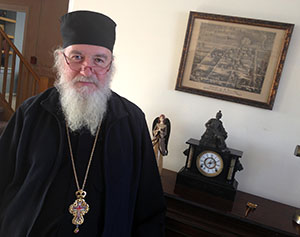 Abbot Nicholas (Zachariadis) of the Holy Resurrection Monastery (Wisconsin) gave a non-scholarly talk on celibacy, marriage and priesthood. It is relevant to Byzantine Catholics (…and others).
Abbot Nicholas (Zachariadis) of the Holy Resurrection Monastery (Wisconsin) gave a non-scholarly talk on celibacy, marriage and priesthood. It is relevant to Byzantine Catholics (…and others). Abbot Nicholas (Zachariadis) of the Holy Resurrection Monastery (Wisconsin) gave a non-scholarly talk on celibacy, marriage and priesthood. It is relevant to Byzantine Catholics (…and others).
Abbot Nicholas (Zachariadis) of the Holy Resurrection Monastery (Wisconsin) gave a non-scholarly talk on celibacy, marriage and priesthood. It is relevant to Byzantine Catholics (…and others).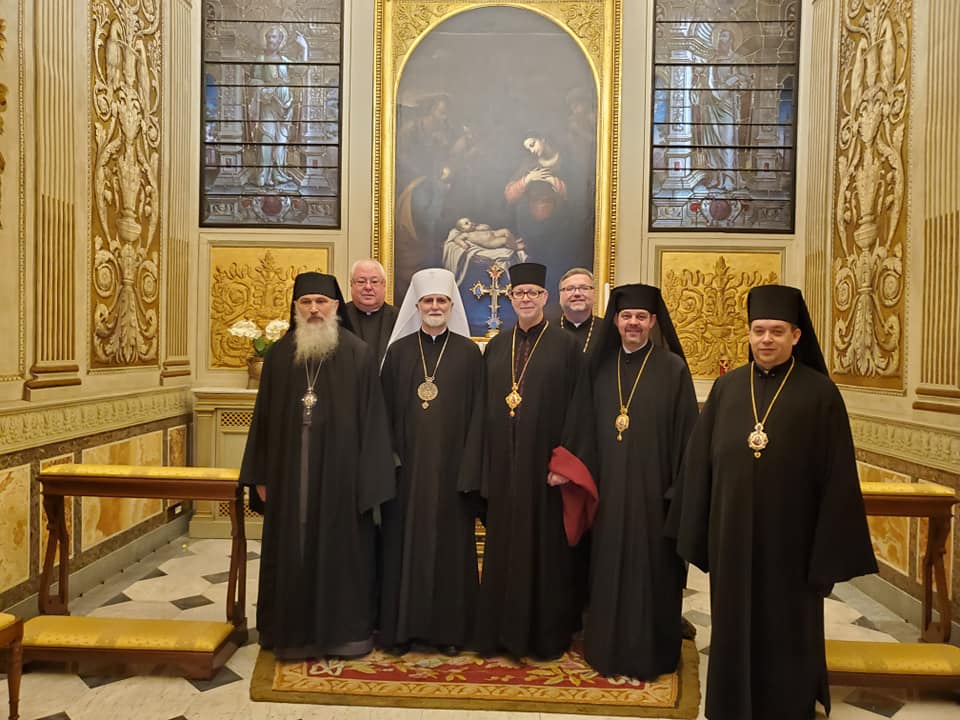 The Eastern Catholic Bishops in the USA have been in Rome this week for their every 5 year pilgrimage to the Shrines of Saints Peter and Paul, meetings with the various offices at the Holy See and a meeting with the Pope.
The Eastern Catholic Bishops in the USA have been in Rome this week for their every 5 year pilgrimage to the Shrines of Saints Peter and Paul, meetings with the various offices at the Holy See and a meeting with the Pope. 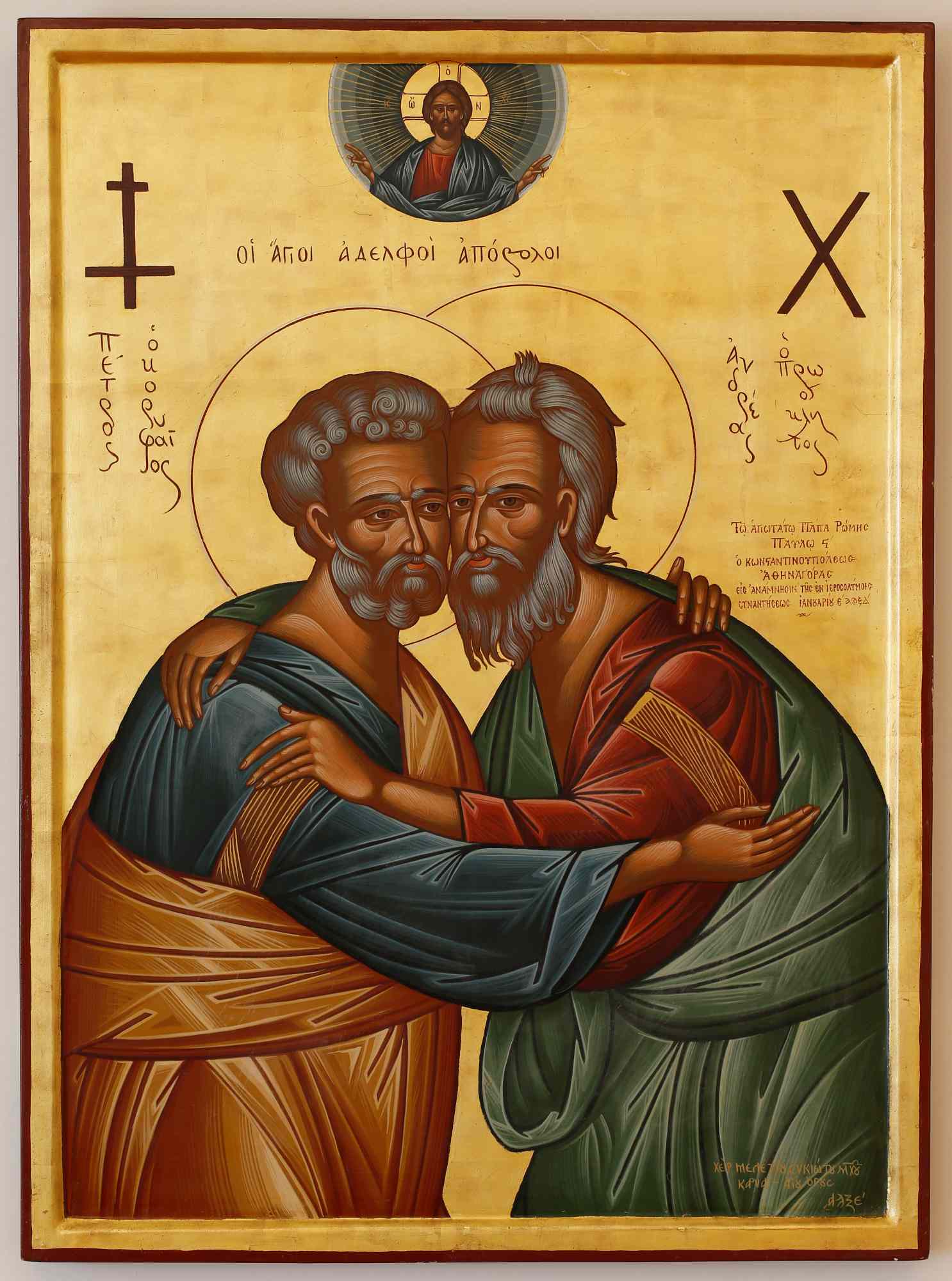 As we celebrate both the mystery of baptism and the search for Christian unity through dialogue, we see the unity of the two in the sacramental mystery of our baptism: “The fact that our churches share and practice this same faith and teaching requires that we recognize in each other the same baptism and thus also recognize in each other, however “imperfectly,” the present reality of the same Church. By God’s gift we are each, in St. Basil’s words, “of the Church.” (Orthodox-Catholic Theological Consultation, “Baptism and ‘Sacramental Economy’: An Agreed Statement, 1999). Ecumenism is the search for unity among all Christians. Unity must be established on truth, but we know that God is Truth (John 14:6).
As we celebrate both the mystery of baptism and the search for Christian unity through dialogue, we see the unity of the two in the sacramental mystery of our baptism: “The fact that our churches share and practice this same faith and teaching requires that we recognize in each other the same baptism and thus also recognize in each other, however “imperfectly,” the present reality of the same Church. By God’s gift we are each, in St. Basil’s words, “of the Church.” (Orthodox-Catholic Theological Consultation, “Baptism and ‘Sacramental Economy’: An Agreed Statement, 1999). Ecumenism is the search for unity among all Christians. Unity must be established on truth, but we know that God is Truth (John 14:6).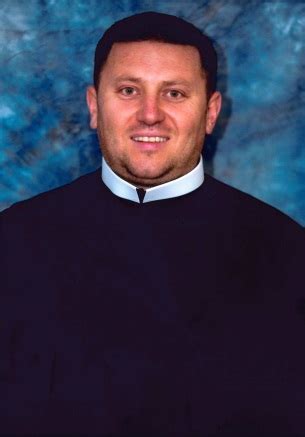 Today, Pope Francis accepted the resignation of pastoral governance of the Eparchy of Saints Peter and Paul of Melbourne of the Ukrainians (Australia) presented by Bishop Peter Stasiuk, C.Ss.R. At the same time the Pope nominated a new bishop of the eparchy Father Mykola Bychok, C.Ss.R., until now the parochial vicar of the parish of St. John the Baptist in Newark, NJ.
Today, Pope Francis accepted the resignation of pastoral governance of the Eparchy of Saints Peter and Paul of Melbourne of the Ukrainians (Australia) presented by Bishop Peter Stasiuk, C.Ss.R. At the same time the Pope nominated a new bishop of the eparchy Father Mykola Bychok, C.Ss.R., until now the parochial vicar of the parish of St. John the Baptist in Newark, NJ.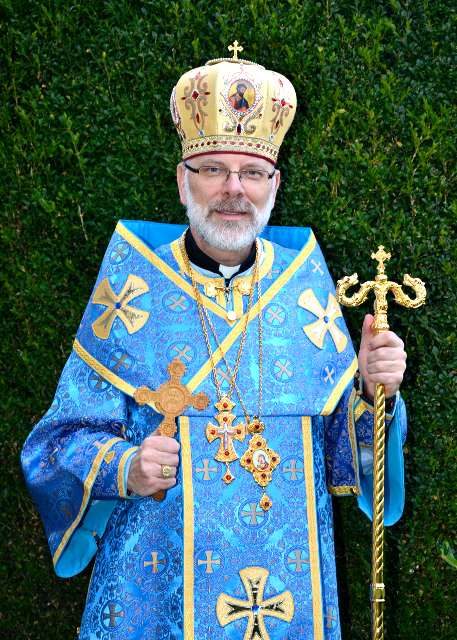 Additionally, Pope Francis nominated as bishop of the Eparchy Holy Family of London of the Ukrainians in Great Britain Bishop Kenneth Anthony Adam Nowakowski, transferring him from the Eparchy of New Westminster of the Ukrainians in Canada.
Additionally, Pope Francis nominated as bishop of the Eparchy Holy Family of London of the Ukrainians in Great Britain Bishop Kenneth Anthony Adam Nowakowski, transferring him from the Eparchy of New Westminster of the Ukrainians in Canada. From a 2016 sermon of His Beatitude Sviatoslav of Kyiv and Halych:
From a 2016 sermon of His Beatitude Sviatoslav of Kyiv and Halych: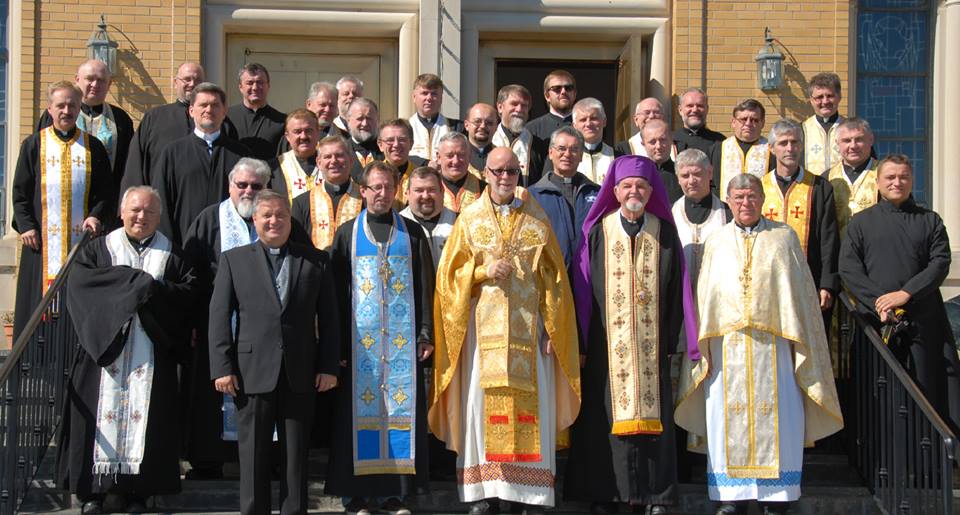 The Stamford Eparchial Clergy Fall Days, 2019
The Stamford Eparchial Clergy Fall Days, 2019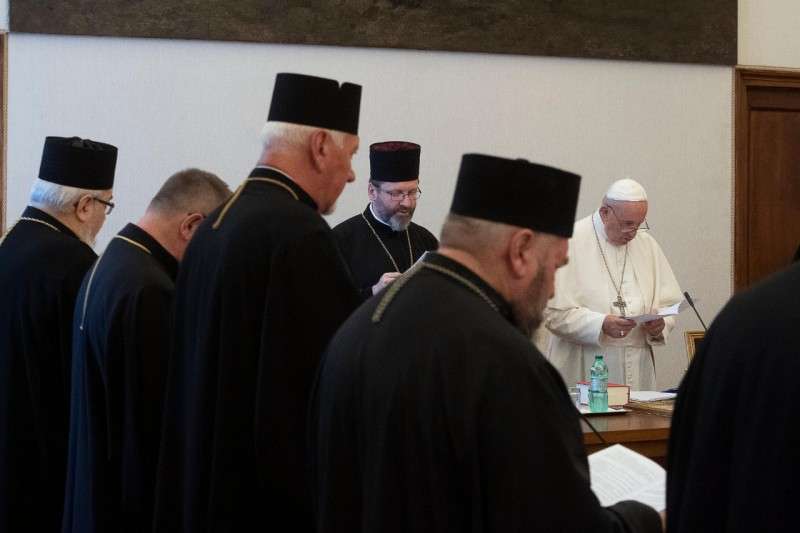 Here is a summary of an article by Andrea Gagliarducci published by Acistampa in Italian on the recent meetings of representatives of the Synod of Ukrainian Greek Catholic Church in Rome. The
Here is a summary of an article by Andrea Gagliarducci published by Acistampa in Italian on the recent meetings of representatives of the Synod of Ukrainian Greek Catholic Church in Rome. The